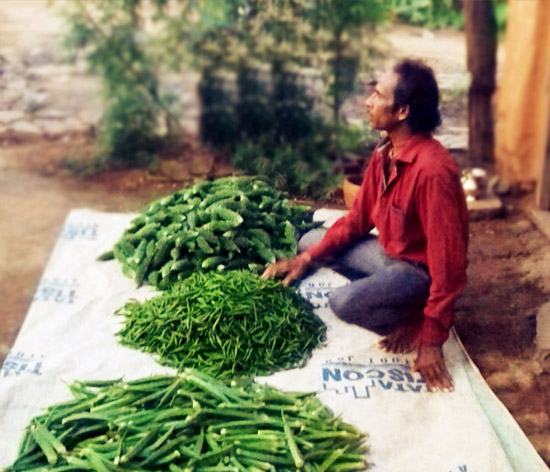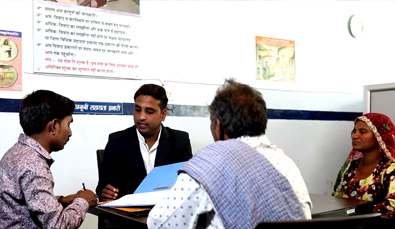
In the last few decades, migration has seen an upswing in India. An increasing number of people migrate in search of economic opportunities with a dream of improving their quality of life. The trend has led to a rise in the number of urban poor and resulted in migrants becoming vulnerable to several residential, occupational and social issues.
The Tata Trusts began focusing on migration as an issue within the larger canvas of urban poverty. The Trusts’ vision is to support migrants and their families by sustainable and scalable solutions to achieve largescale impact. Their destination migration programmes tackle the root cause of occupational vulnerabilities of seasonal migrants through on-site service delivery at brick kilns and construction sites – industries that witness the largest influx of migrant workers. As part of the programme, crèches and bridge schools for children of migrant workers, and multi-service delivery centres have been operationalised in various brick kiln clusters.

By 2011, the Trusts’ migration programme had grown to comprise 34 partners across 9 states and impacted over 300,000 migrants. The strategic focus of the programmes in the current phase (2016-19) is on creating a significant impact in the quality of life of 2 million migrants and their families.
From migrant to farmer
Senapaty Bag’s story is a good example of the success of this programme. Senapaty is a 40-year-old resident of Tughlapadar village, Komna block in Nuapada district of Odisha. Aspiring to give his family a better life, he migrated to Hyderabad to work at a brick kiln. Increasing indebtedness and family responsibilities forced him to continue this relocation every year. Consequently, his health began to deteriorate and he could hardly save enough for the future. Recalling his agony, Senapaty says, “I felt my ineptness was increasing; my strength to face life was diminishing. With limited knowledge and skills, I could only work as a labourer to support my family.”
One day, Senapaty's friend told him about the agriculture training provided by Tata Trusts to 30 individuals in his area. Senapaty joined the next training session, and tried to use the knowledge on the field to see its effectiveness. “The exposure changed my life,” says Senapaty. “I learned the best practices of vegetable cultivation and put all my efforts to practise this learning on my land.” The Trusts provided regular technical support for smoother execution. In just three months of the production cycle, Senapaty realised a total sales of Rs50,000 from half an acre of land. He is one of the 120 farmers who adopted farming, fighting the necessity to migrate under distress.
Extending a helping hand
The Trusts aim at making the Migrant Resource Centres (MRC, called Apna Sewa Kendras in a few states) self-reliant service delivery centres. The services include linkages to government entitlements and schemes, legal assistance in wage and worksite accident-related cases, and linkages to skill training, employment opportunities and banking services.
MRCs help migrant workers across five districts of Rajasthan to access mediation support to retrieve their hard-earned wages that are lost in disputes with politically and economically powerful employers. The legal mediation service of MRC has reached out to more than 10,000 individual migrant workers and has helped empower more than 250 migrants to resolve their disputes.
In one case, a group of 35 migrant workers from Masuda block of Ajmer district in Rajasthan who worked on laying a pipeline, were not paid their wages. The issue arose after the sudden, unfortunate death of the contractor who had employed them. While the employer paid no heed to the workers’ pleas, local lawyers demanded hefty commissions. One of the affected workers, an active MRC member, brought his co-workers to the MRC for help. The MRC mediated the case with the employer and eventually, the latter agreed to pay the workers’ wages amounting to a sum of Rs13 lakh.
